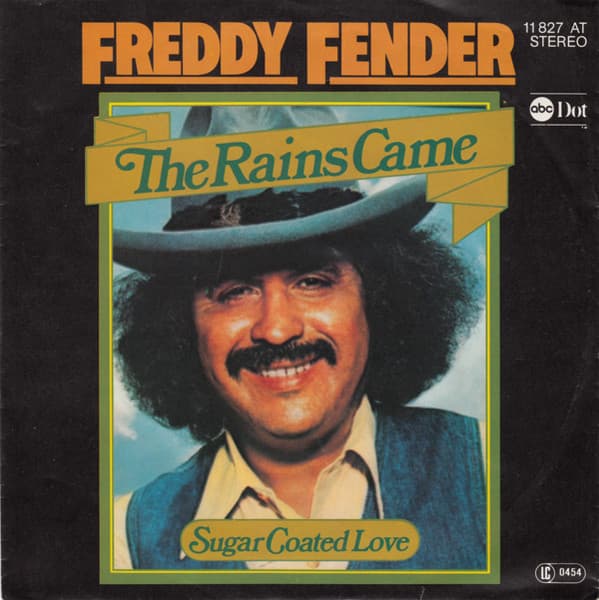
🌧️ A Tearful Downpour of Regret and Longing
The Deluge of Despair: Freddy Fender’s “The Rains Came”
Ah, the 1970s. For many of us, it was a time of undeniable change, a decade where the lines between genres seemed to blur beautifully, giving rise to some truly unforgettable sounds. And standing right at that vibrant, soulful intersection of country, rock, and his undeniable Tex-Mex heritage was the incomparable Freddy Fender. His voice—that rich, trembling tenor—could carry a world of heartache and longing, making every listener feel the truth in his songs. One such track that washes over the memory like a sudden, soaking storm is his 1977 rendition of “The Rains Came”.
“The Rains Came,” first appearing on his 1976 album Rock ‘n’ Country and then released as a single the following year, was a tremendous success that only further cemented Fender’s crossover appeal. The song, written by the legendary swamp-pop producer Huey P. Meaux (who also had a hand in many of Fender’s biggest hits), peaked impressively at #4 on the Billboard Hot Country Singles chart. For a working-class hero from Texas, whose journey included early struggles and even a stint in prison before his explosive comeback, this top-five hit was another well-deserved testament to his enduring talent. It even hit #1 on the RPM Country Tracks chart in Canada, demonstrating just how universal the song’s emotional resonance was.
But the story of “The Rains Came” actually goes back much further than Freddy Fender’s mid-’70s resurgence. It was first recorded in 1962 by Big Sambo and the House Wreckers and then notably covered by the great Texas counterpart Sir Douglas Quintet in 1965, reaching the Billboard Hot 100 on both occasions. However, it is Fender’s 1977 take—slowed just a touch, infused with his signature melancholic delivery, and blessed with the shimmering steel guitar typical of the era—that truly poured out the song’s profound meaning.
The meaning of “The Rains Came” is beautifully simple and tragically universal: it is a raw, aching lament for a lost love, equating the relentless, cold downpour outside the window with the uncontrollable, overwhelming flood of tears and sorrow within. The lyrics paint a picture of utter despair: “The rain keeps falling, tears keep coming down / I can’t find my baby, I wonder she left town.” The rain is not just a meteorological event; it is a metaphor for the speaker’s profound isolation and regret. The world outside is weeping for him, mirroring the dampness on his “soaking wet” pillow. It captures that terrible, sinking feeling when the realization hits: she’s gone, and the only company he has is the steady, sorrowful drumming of the rain.
For those of us who came of age during those years, this song is a potent trigger for memory. You don’t just hear it; you feel the specific brand of heartache it describes—the kind that makes the world slow down and turn gray. Freddy Fender had this unique gift: he could sing a song originally rooted in R&B, dress it up with some Nashville polish, and still make it sound like a personal confession delivered on a lonely Tejano night. It’s that authenticity, that genuine blend of cultures and emotions, that made his music, and especially this song, so unforgettable. It remains a beautiful, powerful piece of the soundtrack to our younger years.